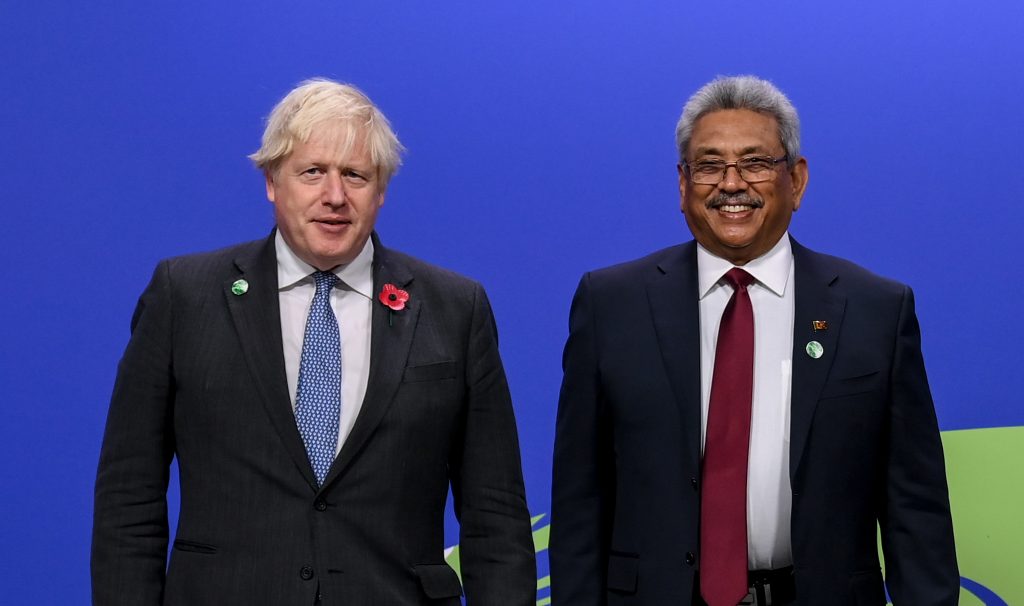Writing in the Daily Mirror in advance of his visit to Colombo, Jaffna and Trincomalee, Britain’s Minister for South Asia, Lord Ahmad, stressed the importance of dealing with Sri Lanka’s past to create a “lasting peace and building an inclusive future”.
His visit comes numerous diplomats are expected to visit the island this month. This includes Hungary’s foreign minister, Péter Szijjártó, Speaker of the National Assembly of Korea, Park Byeong-seug and Turkey’s foreign minister, Mevlut Cavusoglu.
In his piece, Lord Ahmad stressed the importance of the Geneva process in providing “an essential framework for all those supporting Sri Lanka’s progress on peace, accountability, reconciliation, and social cohesion following the civil war”. The UK the latest UN resolution which mandated the collection and preservation of evidence that may be used in a future war crimes tribunal. Sri Lanka bitterly opposed the resolution describing it as “unwarranted, unjustified”, and “illegal”.
Ahmad goes on to quote recently passed anti-apartheid leader, Archbishop Desmond Tutu, and states:
“True peace must be anchored in justice and an unwavering commitment to universal rights for all humans, regardless of ethnicity, religion, gender, national origin or any other identify attribute.”
Read more here: Desmond Tutu and the Tamil liberation struggle
Freedom of religion and tackling gender-based violence
The Minister further noted Britain’s goal of supporting freedom of religion and “strengthening the rights and opportunities for women and girls”.
This comes as human rights campaigners have raised concerns over the continued persecution of religious minorities particularly Muslims and Christians. The UK-based Christian Solidarity Worldwise (CSW) charity has reported that Christians have been “targeted through legal means, via orders to close or register their places of worship". Muslims have also been subject to discriminatory legislation, harassment, and violent pogroms in recent years.
Read more here: Former US Envoy urges international pressure to end religious persecution in Sri Lanka
Ahmad’s piece notes Britain’s support for Sri Lanka in tackling “violence and online abuse”. This follows Police Scotland’s decision in November that they would not renew their training contract with Sri Lanka due to ongoing human rights concerns. The decision follows human rights campaigners repeatedly raising concerns that Sri Lankan authorities lacked the will to end their abuses and were using British training as a smokescreen for their crimes.
Ahmad also detailed Britain’s support for “civil society to tackle hate speech and extremism promoting dialogue and understanding across faiths and strengthening the monitoring and reporting of crime”.
In November the British Upper Tribunal raised concerns over Sri Lanka’s systems of surveillance and intimidation, describing the country as “an authoritarian regime”. Since coming to office, President Rajapaksa has imposed wide-reaching proscription on hundreds of individuals and several Tamil and Muslim organisations. He has also expanded the country’s draconian Prevention of Terrorism Act under the guise of deradicalization enabling authorities to arbitrarily detain individuals.
“There is also ample evidence of journalists and others who have sought to investigate alleged wrongdoings by political and military leaders being targeted for harassment and intimidation” the Tribunal noted.
Concerns over Greenwashing

Commenting on the threat of climate change, Lord Ahmad maintained that “the UK will continue working closely with Sri Lanka to help realise its transition to a greener and sustainable economy”.
He further added that the UK is a “long-term partner with Sri Lanka” and is keen to advance the country’s goals to new infrastructure, develop the financial services sector and expand trade and investment links”.
During the 2021 United Nations Climate Change Conference, COP26, President Rajapaksa attempted to present himself as a model leader on environmental issues but was met by widespread protests by British Tamils and human rights campaigners.
"While Gotabaya presents himself as an environmental champion, his government's policies have in fact encouraged the destruction of precious forests and other natural resources by businesses with connections to the regime - and his crash course in organic farming has discredited the idea among farmers otherwise quite favourable to it", Alan Keenan, Senior Consultant on Sri Lanka at the International Crisis Group noted at the time.
He further added,
"It's essential to see the Sri Lankan government's sponsorship of the COP26 panel on nitrogen as part of their recently launched charm offensive with the UN and western governments, designed to prove they are good global citizens and to distract from the dangerously discriminatory and repressive policies they are pursuing at home and to undermine the UN Human Rights Council's calls for major reforms.
Read more here: Greenwashing Genocide? The UK welcomes Sri Lanka's notorious President
Committed to human rights
Ahmad stresses throughout his piece his support for “those in Sri Lanka striving for good governance and for strengthening human rights for all citizens”.
Read Lord Ahmad's full piece here.
